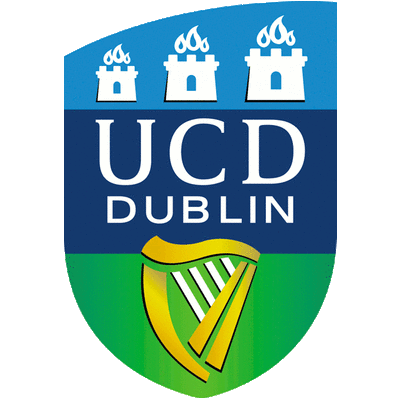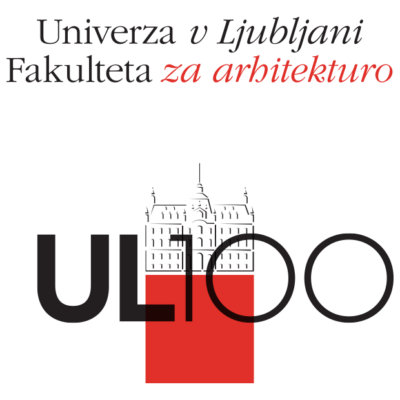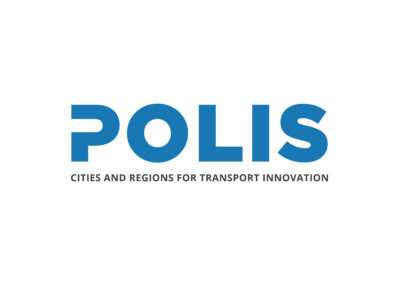Partners
Transport & Mobility Leuven NV

Transport & Mobility Leuven NV conducts applied research to support policy decisions. It is our missionto help society by offering scientifically sound analyses. To this end, we rely on quantitative research: modelling, statistical analyses, simulations, and prognoses.
Our research fields are traffic, passenger and freight transport and the related economic impact andenvironmental problems. The integration between passenger and freight transport, economics andenvironment gives us a unique position within Europe.
TML’s core expertise is traffic modelling for policy support, relying on counting data to calibrate thesemodels. To this end, TML typically acquires traffic counting data from external partners, using differenttechniques (tubes, manual counting, ANPR, floating car data,...). The observation that TML has to rely onthird parties for (expensive) traffic counting data, while low cost techniques and citizen science activitiesare on the rise, has led to the birth of Telraam and WeCount, where TML involves citizen directly in thegeneration of useful traffic counting data, in an affordable way.
Transport & Mobility Leuven was founded in 2002. The largest shareholder is KU Leuven. Their expertisehas been combined and further applied to support policy decisions. Our excellent relation with ourshareholders guarantees that TML is always up-to-date with the most recent state-of-the-art.
Our focus is both scientific and practical: we are the bridge between the university and society. Our clientsare the European Commission, national governments and administrations, local and regional authorities aswell as sector associations and non-profit organizations. They base their policy on our analyses andprognoses.
We conduct our projects with great concern for independence and openness. Transport & Mobility Leuvenis not associated with road construction companies, economic sectors or political parties. We think it isimportant to communicate self-critically and openly on our methods and sources. We clearly communicatenot only our end results, but also our intermediate results and methods. Our research results thus instilinsight and trust, and can thus be defended.
https://www.tmleuven.beIdeas for Change

Ideas for Change (IFC) is a consulting and research company that works in the fields of citizen science, innovation, business strategy and user-centred design. IFC has pioneered research on open strategies and exponential growth and consulted for big, medium and small size clients looking to transition to more contributive and open strategies while sustaining competitiveness. As part of its core business, IFC has developed frameworks to catalyse innovative solutions to social challenges through creative combinations of citizen participation, economics of open data and collaborative-distributed technologies and processes. Examples are: Pentagrowth, The Bristol Approach, Future Proof Lab and Salus.coop. Our team includes a wide range of expertise and skills, from research to business strategy, design and technology development.
In WeCount, IFC leads WP2 where the overall strategy, methods and support network for running citizen science pilots will be designed. To run this task, IFC will draw upon its previous experience in developing citizen science pilots across different domains (noise, air pollution, health, food). IFC will also coordinate the Madrid citizen science pilot (WP4) and will contribute to disseminate the project results in events targeted to a wide range of publics, such as businesses, civil organizations, academics and public bodies.
https://www.ideasforchange.com/University of the West of England, Bristol

UWE BRISTOL is one of Britain's most popular universities, with around 30,000 students and 3,500staff. It is the largest provider of Higher Education in the South West of England, and makes a major contribution to the social and economic development of Bristol and the surrounding region.
The University offers more than 600 courses at undergraduate, postgraduate, professional and short course levels, and is renowned for its reputation for teaching, with all subjects being externally assessed as consistently excellent.
-
Over a third of UWE BRISTOL’s research was rated world leading or internationally excellent in the most recent Research Assessment Exercise (HEFCE).
-
UWE BRISTOL is ranked 11th in the country for employability of its graduates (Higher EducationStatistics Agency, 2011).
-
UWE BRISTOL is the top new University for successful research applications (HEFCE).
The collective UWE BRISTOL team brings together the transport / air pollution expertise with citizen engagement / science communication expertise from two specialist research groups located with the Faculty of Environment and Technology.
Through the breadth and quality of its teaching and research, and a focus on partnerships, UWE BRISTOL is at the hub of numerous dynamic and impactful collaborations. In fact, the university is actively engaged with over 4,000 business and community organisations, and UWE BRISTOL partnerships bring together knowledge, experience, networks and facilities, to deliver the very best student experience and teaching while generating solutions to some big issues.
https://www1.uwe.ac.uk/about.aspxUniversity College Dublin

The UCD Spatial Dynamics Lab's work lies at the intersection between cities and technologies. The Lab's goal is to build better cities through technology, innovation and citizen participation. The focus areas of the Lab are smart cities and in specific geospatial analysis and modelling of urban dynamics, which involves the development of GIS based models and decision support tools, in order to pre-empt the impacts resulting from the interactions between human population and the environment. We use a range of pervasive and community sensing applications as a means of calibration and validation of these GIS tools. We then integrate the GIS models and data streams from pervasive sensing deployments with advanced machine learning algorithms to gain a better understanding of the spatial dynamics in cities.
https://www.ucd.ie/University of Ljubljana

University of Ljubljana (UL) is the oldest and largest higher education and scientific research institution in Slovenia. It contributes almost half of the research results of Slovenia. UL encourages interdisciplinary and multidisciplinary study, exchanges results of achievements in science and art with other universities and scientific research institutions, thus contributing to the Slovenian and global knowledge treasury. UL is the co-founder of the Slovenian Innovation Hub, which operates as a facilitator and promoter of development and research teams in the academic and business sphere and the Institute for Research and Innovation. University is also a member of numerous international networks like EUA, EUTOPIA, The Guild, CELSA, UNICA, Utrecht Network and a member of LERU-CE7 initiative. In the programming period 2007-2013 University of Ljubljana altogether cooperated in 745 European projects, including 163 FP7 projects, which ranked UL on the first place in the EU-13 countries among the research organisations (source MIRRIS). We are currently cooperating in 130 HORIZON 2020 projects out of which 31 MSCA projects (11 MSCA ITNs, coordinating two EJDs) and 4 ERC grants as well as 150 ERASMUS+ projects ranks UL at the top of the new member states. UL researchers cooperate also in several NIH, UNESCO, NATO and other international projects.
Faculty of Architecture (FA) is an educational and research institute focusing on innovative solutions related to the architecture and urbanism. The aim of the organisation is to respond actively to changing social conditions both nationally and internationally. FA supports its members to think carefully, critically, and evaluatively about what they design. With its expertise multi-layered responses to the scope and causes of spatial, as well as social, economic and physiognomic changes in the Slovenian urban areas are studied.
https://www.uni-lj.si/Mobiel 21

Mobiel 21 is all about setting people in motion. Mobiel 21 is a non-profit organisation that inspires and activates people to deal with mobility in a sustainable and smart way. As an independent research centre Mobiel 21 develops and disseminates knowledge that helps organisations and policymakers to work together on effective behavioural change.
https://www.mobiel21.be/Polis

POLIS has been a European network for dialogue and cooperation on innovative urban transport issues between cities and regions since 1989. It currently represents 78 cities, regions and transport authorities from all over Europe. POLIS' objective is to support European cities and regions to improve the quality of life of their citizens through innovative measures for sustainable urban transport. The network facilitates access to European initiatives and research programmes for its members, looking into solutions for urban and regional mobility through innovative governance approaches, in the field of health and environment, traffic management and intelligent transport systems, road safety, and social and economic access. POLIS events, publications and in-house expertise create opportunities for members to exchange experience and forge partnerships among themselves, with the industry and the research community, and to develop innovative policy-responsive transport solutions.
Polis will be leading the project’s dissemination activities.
POLIS has a longstanding experience in promoting innovative solutions for local transport and has participated in many EU projects and local activities in this field. POLIS ensures the dissemination of results in many EU projects, supports cities and regions in implementing innovative solutions through focus groups, seminars and individualised guidance and advice, has managed demonstration work-packages in several research projects and coordinates end-user groups in industry and research-led projects. POLIS also acts as a facilitator between the EU projects and their end-users in cities in publishing guidance and policy notes and organising capacity building activities that aim to support the use of project results by cities and regions.
https://www.polisnetwork.eu/